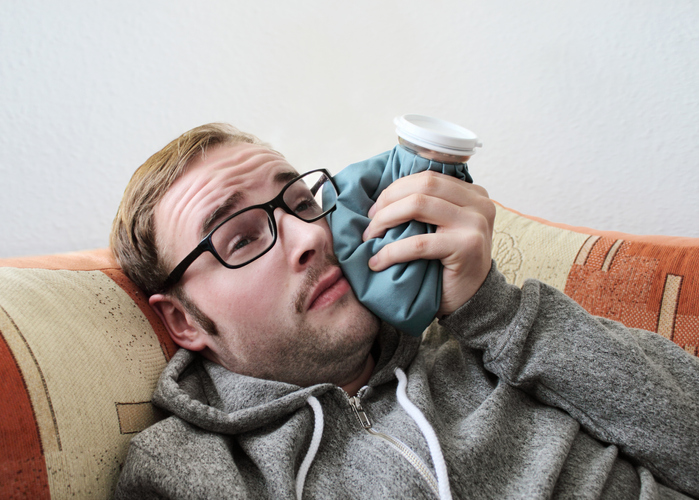Questions and Answers About Herpes
We explain everything about this infection
Publicado:
What is herpes?
Herpes is an infection caused by the herpes simplex virus (HSV) 1 and 2. The difference between these two types of virus lies in where the infection—which consists of small blisters that disappear after a few days—usually appears. It can be surprising, but the biggest issue a herpes outbreak causes is the social stigma.
What are the symptoms?
Some people do not have symptoms, whereas others have sores or blisters that can appear around the mouth (HSV-1) or genital area (HSV-2), although it can also affect other parts of the body, such as the eyes. The blisters usually cause itching and burning.
How is it transmitted?
HSV-1 is primarily transmitted by mouth-to-mouth contact, which causes oral herpes, or by contact with the virus in sores, saliva, or the area in and around the mouth. It can also be transmitted to the genital area through oral-genital contact, causing genital herpes. HSV-2, which usually appears in the genital area, is primarily transmitted through contact during sex.

What triggers a herpes outbreak?
Some factors are known to predispose the virus to appear. This includes excessive sun exposure, stress, and tiredness. This can trigger an outbreak, with the appearance of blisters and a stinging sensation.How long does a herpes outbreak last?
Most people who get herpes have outbreaks several times a year. But over time, outbreaks occur less and less often. As the years go by, the outbreaks will go away, but the virus will remain dormant in your nervous system.
Is herpes the same as a fungal infection?
No, herpes and a fungal infection are not the same. A fungal infection is caused by a fungus and herpes is caused by a virus. However, these two conditions can cause confusion as they share many symptoms in common, such as itching and stinging.
Are herpes and shingles the same thing?
Shingles (herpes zoster) is a skin rash caused by a virus in the herpes virus family. The virus that causes shingles (herpes zoster) is the same virus that causes chickenpox. Some of the symptoms include constant pain, general discomfort, headache, and joint pain. There is a vaccine against this type of herpes that is especially recommended for adults and seniors.

Is herpes related to hygiene?
Although this virus is not contracted through poor hygiene habits, you should take cleaning precautions just like you would with any other virus if you have herpes. Some helpful, practical tips include washing your hands, avoiding contact with your eyes, and not wetting your contact lenses with saliva.
What are the symptoms of genital herpes?
When you have genital herpes, some of the most common signs are painful urination, itching, burning, and lack of energy. Later on, blisters may appear, causing pain when they pop.
Is there a cure for herpes?
Currently, herpes simplex virus 1 and 2 cannot be eradicated, but with appropriate care and antiviral treatment, symptoms can be reduced and transmission can be minimized. Different groups of researchers are still looking for a vaccine against herpes.

Is there a vaccine against herpes?
Trials have been done in search of a vaccine against herpes simplex 1 and 2, but so far they have not managed to discover immunization that is able to prevent infection. Herpes is treated with antivirals, which weaken the virus and shorten the outbreak period. However, the virus will remain in your nervous system, lying dormant.
How long does the treatment last?
In general, treatment involves taking an antiviral for one or two weeks. Symptoms usually disappear as you take the treatment. Some of the most commonly used drugs to treat herpes are acyclovir, famciclovir, and valacyclovir. There is also a cream form of acyclovir that you can apply to the affected area.

Do home remedies work?
There are no home remedies that can cure herpes, but there are some methods that can help relieve the discomfort of a herpes outbreak. For example, applying ice to blisters or sores reduces swelling and relieves pain, as does applying an antiviral skin cream. Washing the area with an antiseptic soap can prevent the virus from spreading. Avoid hot beverages and spicy or citrus foods.
Can it be transmitted to a baby?
Although it is a rare condition, neonatal herpes can happen when a newborn is exposed to HSV in the genital area during birth. The risk is higher when the mother has contracted the first infection at the end of pregnancy. Women who have genital herpes before pregnancy have a much lower risk of transmitting the virus.Can herpes be prevented?
People with oral herpes outbreaks should avoid contact with the mouth and genital area of other people and not share items that come in contact with saliva. Condoms can help prevent transmission, although it only reduces the risk of infection. Episodes of genital herpes can occur in unprotected areas. For this reason, sex should be avoided when blisters are present.
Sources
American Academy of Family Physicians; National Library of Medicine; National Institute of Allergy and Infectious Diseases; World Health Organization.


